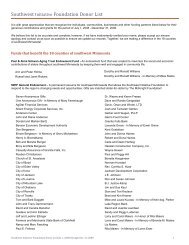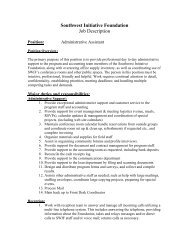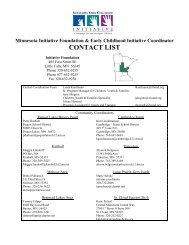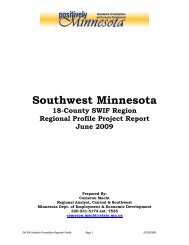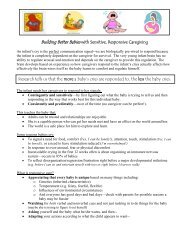Sample Power Purchase Agreement - Southwest Initiative Foundation
Sample Power Purchase Agreement - Southwest Initiative Foundation
Sample Power Purchase Agreement - Southwest Initiative Foundation
Create successful ePaper yourself
Turn your PDF publications into a flip-book with our unique Google optimized e-Paper software.
and one or more clauses excusing nonperformance if a party is unable to perform because of a<br />
force majeure event. The following is an example of a definition of force majeure.<br />
Force Majeure. The performance of each party under the agreement may be subject<br />
to interruptions or reductions due to an event of Force Majeure. The term “Force<br />
Majeure” shall mean an event or circumstance beyond the control of the party<br />
claiming force majeure, which, by exercise of due diligence and foresight, could not<br />
reasonably have been avoided, including, but not limited to an emergency, a force<br />
majeure event on the interconnection provider’s system as defined in the<br />
Interconnection <strong>Agreement</strong> to the extent it causes the facility to by physically<br />
incapable of delivering energy or <strong>Purchase</strong>r from receiving energy to the point of<br />
delivery; a force majeure event (or comparable uncontrollable circumstances as may<br />
be defined in the applicable OATT) on the regional transmission system to the extent<br />
it causes the <strong>Purchase</strong>r to be unable to accept delivery of energy at the point of<br />
delivery or to transmit such energy from and after the point of delivery, flood,<br />
earthquake, storm, fire, lighting, epidemic, war, riot, civil disturbance, sabotage,<br />
strike and act of God or any other cause beyond the control of the party claiming<br />
Force Majeure. However, the obligation to use due diligence shall not be interpreted<br />
to require resolution of labor disputes by acceding to demands of the opposition<br />
when such course is inadvisable in the discretion of the party having such difficulty.<br />
The definition of force majeure may also include items such as: high winds of sufficient strength<br />
or duration to materially damage a facility or significantly impair its operation for a period of<br />
time longer than normally encountered in similar businesses under comparable circumstances;<br />
long-term changes in renewable energy flows across the facility caused by climactic change; and<br />
actions or inactions of a government authority. The definition may also exclude certain items<br />
such as: the unavailability of wind, curtailment, litigation or failure to maintain permits.<br />
If a force majeure event occurs, the agreement will excuse both parties from responsibility and<br />
liability related to any delay or failure to perform. Most agreements will require that the party<br />
asserting force majeure to provide the other party with notice.<br />
D. Remedies<br />
When an event of default occurs and remains uncured, the non-defaulting party may be entitled<br />
to actual damages or the right to terminate the agreement. Actual damages include any damages<br />
incurred as a result of the default. If the seller defaults, this will usually mean the purchaser can<br />
recover costs for purchasing replacement energy in addition to any other costs incurred. If the<br />
default remains uncured for more than 365 days, the non-defaulting party may be required to<br />
either 1) waive its rights to recover further damages or 2) elect to terminate the agreement.<br />
Liability for damages due to a delay or event of default are often capped. The liability cap for<br />
delay damages may be formulaic, for example $75/MW times the nameplate capacity of all wind<br />
turbines. In contrast, liability for events of default are often a fixed amount like $10 million.<br />
8




